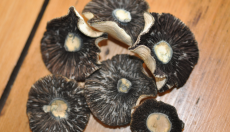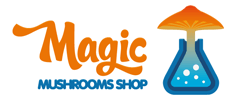Why magic mushroom spores don't contain psilocybin ?
Posted under: News and Science

Spores are a type of reproductive cell produced by fungi that are essential to their life cycle. In the case of magic mushrooms, spores are used to create new mycelial networks and ultimately, new fruiting bodies. However, one interesting fact about magic mushroom spores is that they do not contain psilocybin, the active compound responsible for the mushrooms' psychoactive effects.
What are Spores?
Spores are the reproductive cells of fungi that are responsible for spreading the fungus to new environments. They are similar to seeds in plants and are capable of growing into new fungal organisms when the right conditions are met. In the case of magic mushrooms, spores are produced by the gills of the mushroom's cap and are released into the surrounding environment to initiate new growth.
Why do Spores Not Contain Psilocybin?
Spores do not contain psilocybin or psilocin, the primary psychoactive compounds in magic mushrooms, because they are produced by a different part of the mushroom. Psilocybin and psilocin are synthesized in the mycelium, the vegetative part of the fungus that grows underground and provides nutrients to the fruiting body. The mycelium contains the enzymes necessary to produce psilocybin and psilocin, which are then transported to the fruiting body as it develops.
When is Psilocybin Produced?
Psilocybin production occurs during the growth cycle of the mushroom. After spores are released into the environment, they germinate and begin to grow into a network of hyphae, or filamentous cells. These hyphae then fuse together to form the mycelium, which spreads out and absorbs nutrients from the surrounding environment. As the mycelium matures, it begins to form the fruiting body, which is the part of the mushroom that we typically associate with magic mushrooms.
During the growth of the fruiting body, psilocybin and psilocin are produced in the mycelium and transported to the developing mushroom. This process is influenced by a number of factors, including light, temperature, humidity, and nutrient availability. In some cases, magic mushrooms can be induced to produce more psilocybin by manipulating these environmental factors.
While the exact mechanism by which psilocybin is produced is not fully understood, recent studies have shed light on some of the key enzymes and genes involved in the process.
Spores are an important component of magic mushroom cultivation, they do not contain psilocybin. Psilocybin is produced by the mycelium under specific conditions and is then stored in the fruiting body, which contains the spores. Further research is needed to fully understand the process by which psilocybin is produced and how it can be used for therapeutic purposes.


March 10, 2023